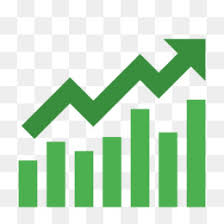Title:
IMPACT OF PANDEMIC COVID-19 AND ECONOMIC ACTIVITY ON AIR QUALITY IMPROVEMENT
Author:
Abstract
Pandemic covid-19 presents a policy of tightening the mobility of the population, which directly impacts the reduced mobility of transportation, private transportation, and public transportation. Economic activity also under pressure from the existence of pandemic covid-19, in which economic activity is a source of air pollution for a large part of the country. The purpose of the study to find out the impact of pandemic covid-19 and economic growth on air quality during the pandemic is in 2020. The research method uses a multiple regression approach with a sample count of 80 countries. The results showed that economic growth has no impact on improving air quality and does not prove the environmental Kuznets curve between development and air pollution. In contrast, the increase in cases of covid-19 has the effect of lowering air pollution in each country. This condition occurs because covid restricts the population to activities, which also affects the activities of the company to produce.
Keywords
Full Text:
PDFReferences
Açikgöz, Ö., & Günay, A. (2020). The early impact of the Covid-19 pandemic on the global and Turkish economy. Turkish Journal of Medical Sciences, 50(SI-1), 520–526.
Bartz, S., & Kelly, D. L. (2008). Economic growth and the environment: Theory and facts. Resource and Energy Economics, 30(2), 115–149.
Berman, J. D., & Ebisu, K. (2020). Changes in US air pollution during the COVID-19 pandemic. Science of the Total Environment, 739, 139864.
Briz-Redón, Á., Belenguer-Sapiña, C., & Serrano-Aroca, Á. (2021). Changes in air pollution during COVID-19 lockdown in Spain: a multi-city study. Journal of Environmental Sciences, 101, 16–26.
Drake, T. M., Docherty, A. B., Weiser, T. G., Yule, S., Sheikh, A., & Harrison, E. M. (2020). The effects of physical distancing on population mobility during the COVID-19 pandemic in the UK. The Lancet Digital Health, 2(8), e385--e387.
Dutheil, F., Baker, J. S., & Navel, V. (2020). COVID-19 as a factor influencing air pollution? Environmental Pollution (Barking, Essex: 1987), 263, 114466.
Erero, J. L., & Makananisa, M. P. (2021). Impact of Covid-19 on the South African economy: A CGE, Holt-Winter and SARIMA model’s analysis. Turkish Economic Review, 7(4), 193–213.
Esso, L. J., & Keho, Y. (2016). Energy consumption, economic growth and carbon emissions: Cointegration and causality evidence from selected African countries. Energy, 114, 492–497.
Fasikha, Y., & Yuliadi, I. (2018). Analisis Pengaruh Perubahan Lingkungan terhadap Pendapatan Per Kapita di Negara-Negara Asean Periode 2005-2015. Journal of Economics Research and Social Sciences, 2(1), 34–43.
Firdaus, I. A. (2017). Pengaruh Pertumbuhan dan Keterbukaan Ekonomi terhadap Perubahan Kualitas Lingkungan: Analisis Environmental Kuznet Curve (Studi Kasus Negara-Negara Anggota Regional Comprehensive Economic Partnership Tahun 1999-2014). Jurnal Ilmiah Mahasiswa FEB, 5(2).
Gujarati, D. N., & Porter, D. (2009). Basic Econometrics. Mc Graw-Hill International Edition.
Hadiwardoyo, W. (2020). Kerugian Ekonomi Nasional Akibat Pandemi Covid-19. Baskara: Journal of Business and Entrepreneurship, 2(2), 83–92.
Hanoatubun, S. (2020). Dampak Covid--19 terhadap Prekonomian Indonesia. EduPsyCouns: Journal of Education, Psychology and Counseling, 2(1), 146–153.
Khari, D., Sharma, V., & Agarwal, N. (2020). Effect of Pandemic COVID-19 on Economic Crisis and Health Issues Globally. Cosmos Journal of Engineering & Technology, 10(1).
Kraemer, M. U. G., Yang, C.-H., Gutierrez, B., Wu, C.-H., Klein, B., Pigott, D. M., … others. (2020). The effect of human mobility and control measures on the COVID-19 epidemic in China. Science, 368(6490), 493–497.
Kukla-Gryz, A. (2009). Economic growth, international trade and air pollution: A decomposition analysis. Ecological Economics, 68(5), 1329–1339.
Lee, M., Zhao, J., Sun, Q., Pan, Y., Zhou, W., Xiong, C., & Zhang, L. (2020). Human mobility trends during the early stage of the COVID-19 pandemic in the United States. PLoS One, 15(11), e0241468.
Ouyang, X., Shao, Q., Zhu, X., He, Q., Xiang, C., & Wei, G. (2019). Environmental regulation, economic growth and air pollution: Panel threshold analysis for OECD countries. Science of the Total Environment, 657, 234–241.
Pajooyan, J., & Moradhasel, N. (2008). Assessing the relation between economic growth and air pollution. The Economic Research, 7(4), 141–160.
Pan, Y., Darzi, A., Kabiri, A., Zhao, G., Luo, W., Xiong, C., & Zhang, L. (2020). Quantifying human mobility behaviour changes during the COVID-19 outbreak in the United States. Scientific Reports, 10(1), 1–9.
Pullano, G., Valdano, E., Scarpa, N., Rubrichi, S., & Colizza, V. (2020). Population mobility reductions during COVID-19 epidemic in France under lockdown. MedRxiv.
Ridwan, I. R. (2010). Dampak industri terhadap lingkungan dan sosial. Jurnal Geografi Gea, 7(2).
Rofiuddin, M., Aisyah, S., Pratiwi, D. N., Annisa, A. A., Puspita, R. E., & Nabila, R. (2019). Does Economic Growth Reduce Pollution? Empirical Evidence from Low Income Countries. E3S Web of Conferences, 125, 06002. https://doi.org/10.1051/e3sconf/201912506002
Rofiuddin, M., Perdana, T. A., & SBM, N. (2017). Economic Activity and Pollution:The case of Indonesia 1967-2013. Jurnal Ekonomi Pembangunan: Kajian Masalah Ekonomi Dan Pembangunan, 18(2), 239. https://doi.org/10.23917/jep.v18i2.5312
Saboori, B., Sapri, M., & bin Baba, M. (2014). Economic growth, energy consumption and CO2 emissions in OECD (Organization for Economic Co-operation and Development)’s transport sector: A fully modified bi-directional relationship approach. Energy, 66, 150–161.
Salahuddin, M., & Gow, J. (2014). Economic growth, energy consumption and CO2 emissions in Gulf Cooperation Council countries. Energy, 73, 44–58.
Sayuti, R. H., & Hidayati, S. A. (2020). Dampak Pandemi Covid-19 Terhadap Ekonomi Masyarakat di Nusa Tenggara Barat. RESIPROKAL: Jurnal Riset Sosiologi Progresif Aktual, 2(2), 133–150.
Susilawati, S., Falefi, R., & Purwoko, A. (2020). Impact of COVID-19’s Pandemic on the Economy of Indonesia. Budapest International Research and Critics Institute (BIRCI-Journal): Humanities and Social Sciences, 3(2), 1147–1156.
Venter, Z. S., Aunan, K., Chowdhury, S., & Lelieveld, J. (2020). COVID-19 lockdowns cause global air pollution declines. Proceedings of the National Academy of Sciences, 117(32), 18984–18990.
Xiong, C., Hu, S., Yang, M., Younes, H., Luo, W., Ghader, S., & Zhang, L. (2020). Mobile device location data reveal human mobility response to state-level stay-at-home orders during the COVID-19 pandemic in the USA. Journal of the Royal Society Interface, 17(173), 20200344.
Zhang, J., Feng, B., Wu, Y., Xu, P., Ke, R., & Dong, N. (2021). The effect of human mobility and control measures on traffic safety during COVID-19 pandemic. PLoS One, 16(3), e0243263.
Zhang, Y., Diao, X., Chen, K. Z., Robinson, S., & Fan, S. (2020). Impact of COVID-19 on China’s macroeconomy and agri-food system--an economy-wide multiplier model analysis. China Agricultural Economic Review.
Zhu, L., Hao, Y., Lu, Z.-N., Wu, H., & Ran, Q. (2019). Do economic activities cause air pollution? Evidence from China’s major cities. Sustainable Cities and Society, 49, 101593.
DOI: https://doi.org/10.31002/rep.v6i2.5192
Article Metrics
Abstract view : 0 timesPDF - 0 times
Cited By
Refbacks
- There are currently no refbacks.
Copyright (c) 2021 Jurnal REP (Riset Ekonomi Pembangunan)

This work is licensed under a Creative Commons Attribution-NonCommercial-ShareAlike 4.0 International License.

This work is licensed under a Creative Commons Attribution-ShareAlike 4.0 International License.
Jurnal REP (Riset Ekonomi Pembangunan)
P-ISSN: 2541-433X E-ISSN: 2508-0205
Published by Department of Economic Development, Faculty of Economics, Universitas Tidar









 Abstract views : 0
|
Abstract views : 0
| PDF views : 0
PDF views : 0